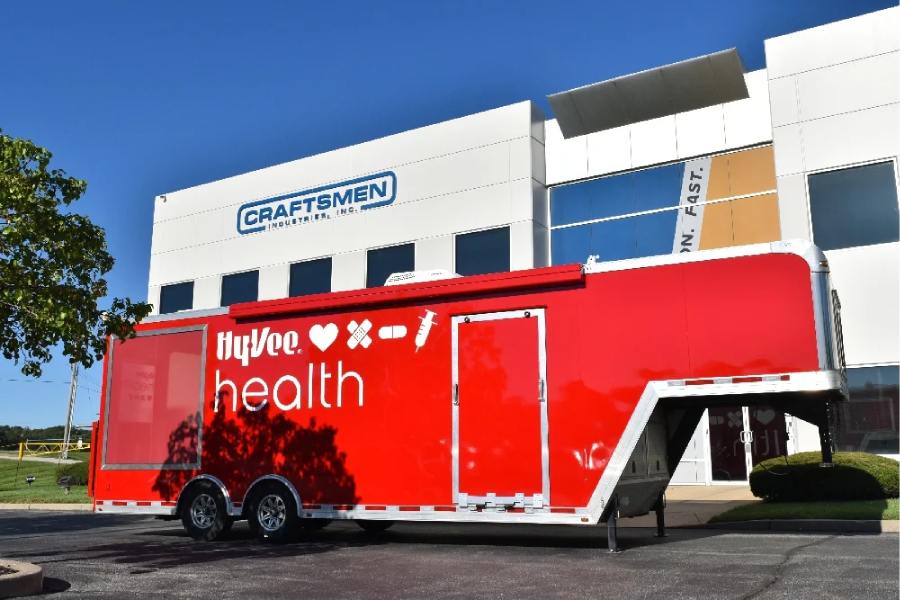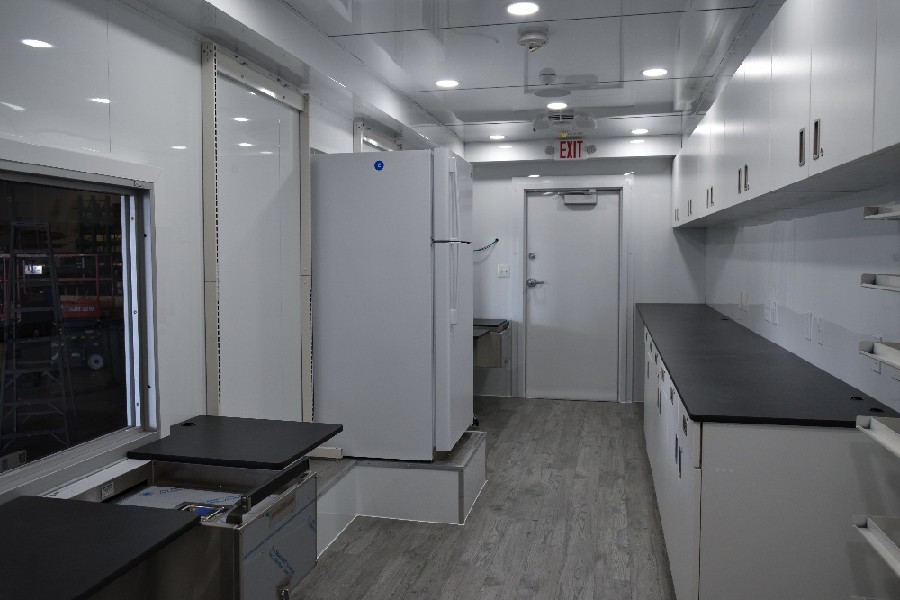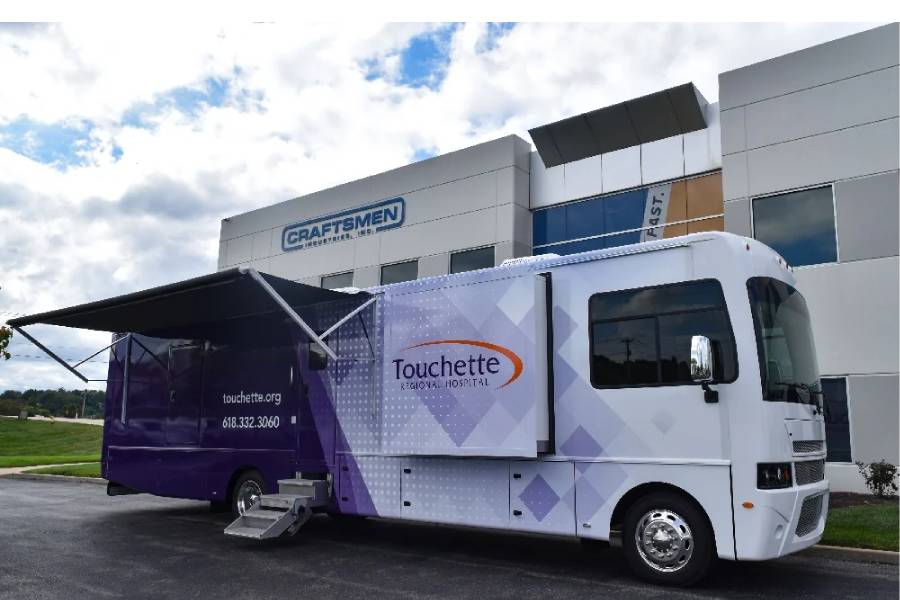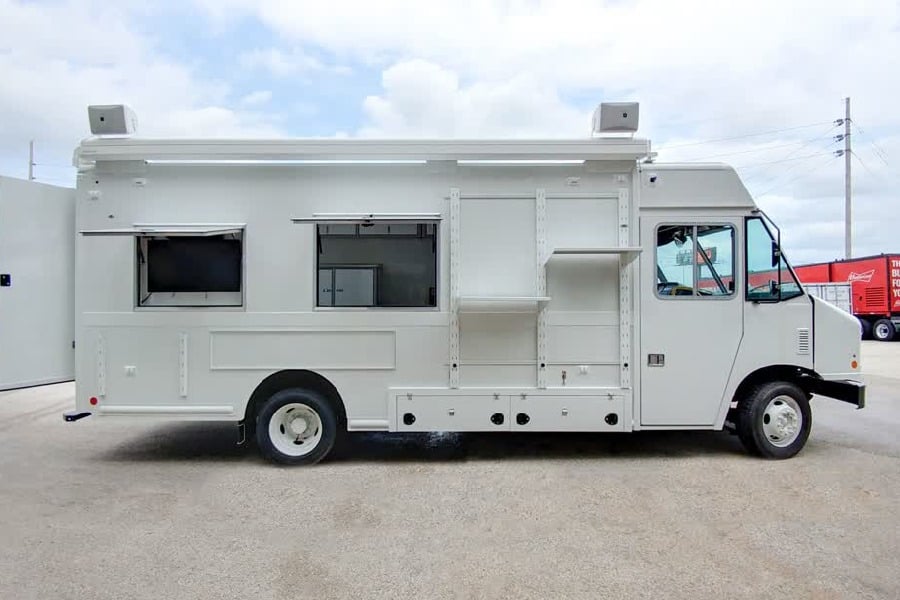Medical Coach Regulations and Safety Standards
Mobile medical coaches are highly complex vehicles designed to bring healthcare services to underserved communities and reach adults and children...
3 min read
Craftsmen Industries Apr 27, 2024 12:47:00 PM

All medical facilities must adhere to government safety regulations. If your healthcare facility is considering expanding its services, you might want to know what safety protocols are implemented in mobile medical vehicles.
With our help, you can learn more about all the protocols and regulations you should follow to provide patient care safety. From infrastructural measures to maintenance requirements, here is everything we take into consideration when building your mobile medical unit.

Source: craftsmenind.com
When we manufacture a mobile medical vehicle, we must ensure it is built according to the latest government regulations. But what safety protocols are implemented in mobile medical vehicles?
While there are certain safety measures that must be taken if the mobile unit offers specific services, the general requirements include:
Be aware that the safety measures might also vary from one state to another. So, when you look for mobile medical units for sale, you should ensure the manufacturer is familiar with the local safety requirements.
In the case of an emergency inside the mobile vehicle unit, the exits should be clearly marked. According to the International Health Facility Guidelines, the emergency exits of the MHU shouldn’t interfere with the main access.

Source: craftsmenind.com
To minimize the risk of infections and contamination, each mobile health unit must have an effective system for medical waste disposal. This safety measure is equally important for both the medical staff and the patients. Mobile medical vehicles must follow EPA medical waste guidelines to ensure safe categorization and disposal of hazardous materials.
The safety protocols for mobile units are just as much for the physical safety of the patients as they are for their privacy. The mobile health units must be equipped with both on-site security measures with limited access control and the ability to use cloud-based or other types of electronic data storage.
The safety of the patients also includes protecting their data.Mobile medical units must be HIPAA-compliant and follow national standards for protecting sensitive patient health information.
Patient privacy must be ensured, both for all paper documents and the ones that are stored electronically. There must be proper infrastructure to ensure protection from theft and digital attacks.
According to OSHA standards, all healthcare facilities, including mobile health units, must have a strategy and adequate environment for safe patient handling. When needed, the mobile unit should be equipped with appropriate patient-handling equipment such as transfer aids, lift devices, adjustable stretchers, etc. The whole place should be designed so it can allow safe equipment maneuvering and free movement.
If you are wondering what safety features are typically included in mobile medical vehicles, one of the essential things is adding panic button systems. There are specific protocols for when the panic buttons should be used. Nowadays, most healthcare facilities have mobile or wireless panic button systems that are easily accessible by the medical staff.
It’s necessary to comprehend what safety measures are in place to prevent the spread of infections in mobile medical vehicles. Adequate storage for personal protective equipment within the mobile medical unit is a crucial safety standard. The correct use of PPE, combined with hand hygiene and other practices, might minimize the exposure and spread of infectious diseases in mobile healthcare units.
The safety protocols for mobile health units aren’t only for the interior of the vehicle. In fact, there are many vehicle safety measurements regarding the technical specifications of the vehicle. Regular inspection and maintenance are required for the mechanical components and electrical system of the mobile unit.
Safety protocols for mobile health units also include creating and executing cleaning schedules. Each mobile health unit must adhere to strict protocols that ensure effective sterilization and patient safety. Depending on the type of equipment and surfaces that should be sterilized in the unit, different methods can be used, such as steam sterilization, UV light, chemical disinfecting, etc.
To ensure the well-being of both patients and staff, you must select the location for the mobile medical unit carefully. The mobile medical unit must be placed in a secure area that is accessible. The traffic flow and parking options should also be considered.
The Health Facility Guidelines have several recommendations for choosing the location of the mobile unit, such as parking the unit on a solid and leveled surface and ensuring it complies with the local environmental regulations.

Source: craftsmenind.com
Understanding what safety protocols are implemented in mobile medical vehicles will prepare you for picking the best company to build it. If you are interested in collaborating with the best team of experts that has successfully manufactured many mobile healthcare units, contact us today.

Mobile medical coaches are highly complex vehicles designed to bring healthcare services to underserved communities and reach adults and children...

Many people struggle with getting adequate medical care due to their circumstances. While some may find it difficult to find a medical facility due...

We recognize how difficult home dialysis is, presenting unique challenges for patients that require specialized equipment, professional assistance,...